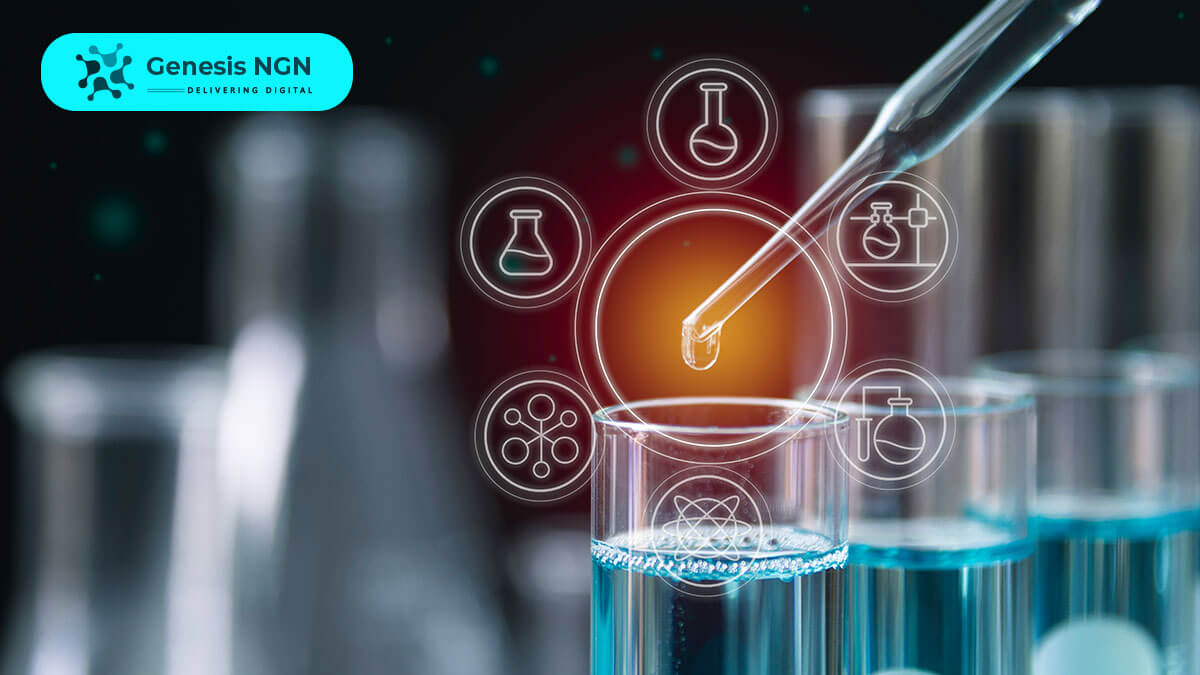From unique and innovative technology processes to sustainable practices, the chemical industry is in the middle of profound changes. Digital transformation in the chemical industry is presenting significant opportunities that may not have been explored earlier, and that can help the organizations to increase efficiency and design unique products and methods.
For the digital transformation to produce optimum results, chemical industries or firms require a standard framework for evaluating the current status, determining the desired future status, and of course, mapping out precise measures on the digital journey. The digital capability stage of the organization will guide strategic arrangements and action steps in the dimensions that are critical for growth. The dimensions are the experience of the user, talent enablement, reliability and performance, system innovation, and ecosystem. This framework will help the organization to assess the digital maturity spectrum and the steps required to attain the outlined target on the digital journey.
Pillars of the Future of Digital Transformation in Chemicals
The success of the chemical organizations planning for the future is built on how they act and respond to the three pillars, which are:
1. Growth and Innovation
Disruptions in agriculture, construction, automotive, and other end-use businesses are creating both opportunities and difficulties for the chemical industry. There are various chemical enterprises that already have determined the future growth strategies, which include studying value-added services to enhance existing product atonements.
2. Performance and Value Optimization
Digital transformation to optimize performance should be executed adequately beyond the factory and should easily integrate with substantial assets. For instance, digital technologies such as predictive analytics and blockchain can be easily integrated with the Internet of Things infrastructure to facilitate track-and-trace abilities.
3. Sustainability and Economy
The growth and development of the chemical industry comes with the responsibility of being practical and sustainable. There should be constant enhancements in efficiency, health, and the environment. And most importantly, the industry must shift from a linear path to a circular path that reuses resources.
The Gamechangers in the Chemical Industry
Big Data
It is a software that gathers the details produced from processes and converts that data into information. Big Data plays a crucial role in decision making and transformational technologies like mobility and analytics. With the help of advanced analytics, the user can obtain Big Data from anywhere and can perform extensive calculations, analysis, and complex algorithms for faster decision making.
Cloud
The cloud can dramatically enhance business swiftness. Also, it can accelerate delivering solutions by providing a cadre of applications like reusable machines that control algorithms to beforehand established analyses and troubleshooting methods, and simulations for production outlines. Companies can also use it to analyze line production, and therefore, becoming a treasury of best methods and practices.
Analytics
Enhanced data capture by organizations need an identical focus on getting value from the data. With the help of more automated machines, tools generating data, and connected sensors, the support infrastructure must develop. As the investments in the systems and networks that accumulate, execute, store, and deliver the data increase, the expected computing potential to deliver the data through analytics may also increase. Speed grows a quintessential element with analytics. Data accessibility to create an operational decision on the basis of a complete design needs a high-performance infrastructure.
Mobility
In the present world, tablets, and smartphones provide the latest information to the workers at their fingertips. This increases the decision making speed of the workers. The applications and information vary depending on the role of the worker. The maintenance workers will need spare parts availability, repair instructions, work orders, ordering capabilities, and other similar applications. The operators will need real-time factory operating information and the capacity to foretell process functions. Executives will need drill-down capabilities and roll-up performance information. Using mobile applications provides access to information when required, without going to the central location. Applications that speed up machine settings are already available.
The development of the smartphone has obsoleted a lot of devices as it converges multiple functions, like, camera, recorder, calendar, calculator, GPS, MP3 player, thermometer, alarm clock, and a lot more. As production tools are provided with sensors, along with communications capability and local intelligence, secure Wi-Fi, and internet connectivity are increasingly essential.
Conclusion
Digital transformation in the chemical industry will need an explicit mapping of readiness, especially the steps needed to build an accommodating culture that encourages flexibility and learning. Digitalization in the chemical industry is quite challenging but can create sustainable business models.

